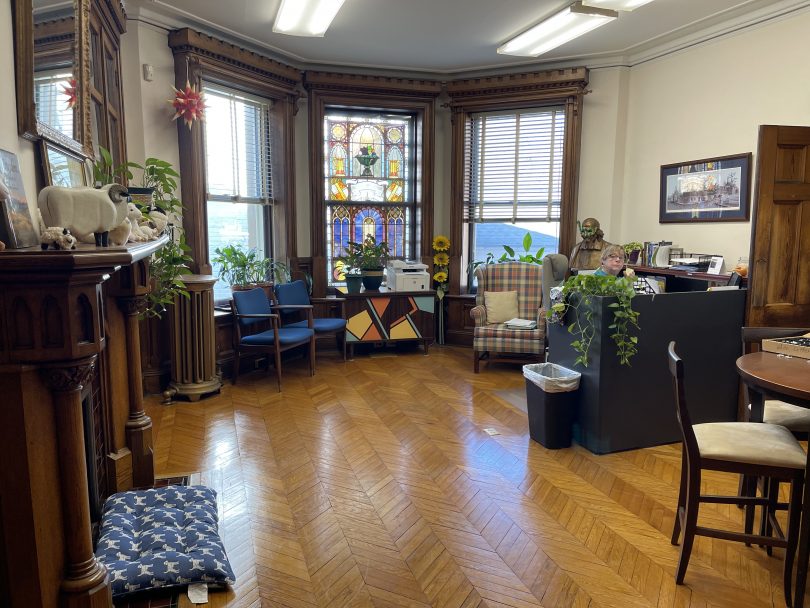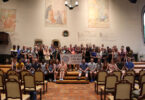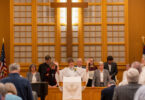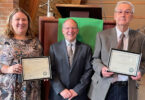Last summer, the Southern Province Provincial Elders’ Conference announced the creation of the Commission on Congregational Development. And beginning last fall, the Commission’s new director, the Rev. Rebecca Craver, began working to flesh out the structure and roles of the new work.
In its announcement, the PEC outlined the basic structure of the new commission. It would assume most of the functions of the former Board of Cooperative Ministries; would be led by pastors and laity; and would assist the PEC in fulfilling the purpose of the Southern Province: “To equip Moravian Christians and congregations to be agents of God’s transforming love in the world. We will do this by providing resources for spiritual growth, community and mission.”
“In response to dynamics of the past two years, including decreased Provincial income and extended pandemic church closings, the PEC has focused on how best to apply reduced resources to support and enhance congregational development,” read the PEC announcement. “After much study and consideration, the PEC is creating this new commission to provide advising and coaching for pastors and congregation leaders on specific ministry development needs, replacing our current educational programming focused model.”
As things are coming together, Rebecca shared some of her thoughts on how the work of the Commission on Congregational Development will enhance the Southern Province.
How are the Commission on Congregational Development and the Board of Cooperative Ministries alike – and different?
I’ve been thinking a lot about that and have spent the last five or six months talking with many people to understand what parts of the Board of Cooperative Ministries were really working well for our congregations and for our leaders, and where people were looking for something that they weren’t finding. The BCM did such a wonderful job of supporting congregations in so many ways; we don’t want to lose those things that are really valuable. We still have a focus on providing solid resource support and consultation, so congregations will know they can access resources that are theologically in-line with the Moravian church and are also good and developmental for children and adults.
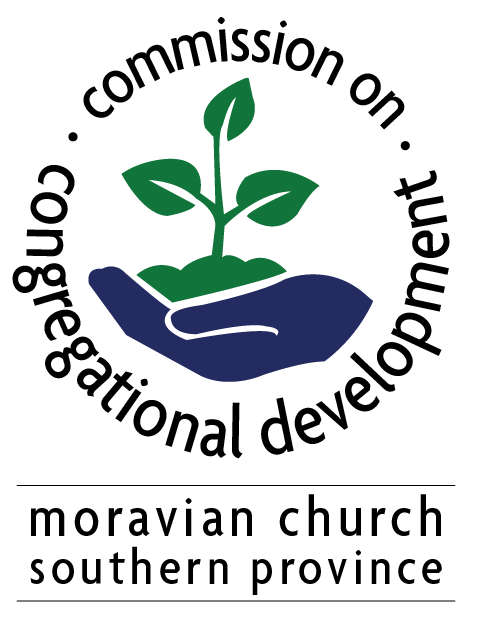 We are still focused on working one-to-one with congregations. However, this is also one of the ways the new Commission will be different, because our focus will be even more on the accompanying congregations through processes of development. That can range from wanting to evaluate their current ministry or starting a new ministry. We want to look at what congregations already have and how they want to grow through appreciative inquiry, asset mapping and tiered approaches to congregational development. As we travel those roads together, we hope to bring in resources and support to help encourage congregations in their work and development as communities of faith in the context in which they find themselves.
We are still focused on working one-to-one with congregations. However, this is also one of the ways the new Commission will be different, because our focus will be even more on the accompanying congregations through processes of development. That can range from wanting to evaluate their current ministry or starting a new ministry. We want to look at what congregations already have and how they want to grow through appreciative inquiry, asset mapping and tiered approaches to congregational development. As we travel those roads together, we hope to bring in resources and support to help encourage congregations in their work and development as communities of faith in the context in which they find themselves.
We have a lot of communication that we want to keep up, like our weekly newsletters, that help us connect with people who want to know more about how they can engage with us. I’m looking forward to seeing what it looks like to build more collaborative capacity in our congregations, to see the ways different ministries intersect and what might happen if we bring those ministries together. What passions do we have that we share that we can do better together, in service of God and the transforming love that we all hope to be agents of in the world?
We have lots that will feel similar, but I also think there are things we’ll discover that we really need going forward. It’s kind of a moving target; we have a solid place to start and as we spend more time learning where congregations are and where they want to go, we’ll have a better idea of what we need to do to support them. The Provincial Elders’ Conference has also asked us to be involved in congregational reviews, which will give us a sense of how our work can intersect with the congregations, and how to help with emerging congregations and ministries.
As the commission is formed, it will have working groups, which will be one way that people can be involved in the ministry. These working groups will be centered around spiritual growth, community and mission. I’m excited to see the kind of interplay between the different voices in these working groups and the opportunities to serve in very specific ways according to our passions and to see what that does for us as a province.
You recently moved your offices to Cedarhyrst. What challenges did you face, and what will that move offer?
Moving to Cedarhyrst (459 S. Church St., Winston-Salem, N.C.) was a challenge. It was definitely tough on our staff and on me to figure out how to move all of our stuff to a different space…where is it all going to go? But I think some of the excitement is that now it feels new, to start from a place that feels like we can move forward with some new life.
One of the other challenges is simply figuring out how to make this space feel like people can find what they need and connect to the resources they’ve grown accustomed to using. Cedarhyrst is a beautiful old building, but can be a little imposing, so we’ve talked about how we make sure that it feels welcoming and hospitable to people who are coming in to visit. As we go along and build this space out, I think we’ll find that it invites people in to be curious and gives us a place to cultivate some creative thinking around where the church is and where God is calling the church to go.
It’s also been wonderful to be in closer proximity with the provincial offices and see where our work overlaps and can support the greater work of the church. The move was also financial—we’re able to save money by sharing space—but it also gives us some flexibility to see what we can really to do support our congregations in their work.
As the Commission continues coming together, what can we look forward to?
One of the things that I’m most excited about with the commission coming into focus is the ability to have a large vision about how the church and the province can support congregations. Part of that vision includes ways congregations can take advantage of opportunities to partner together in different ways.
As we look at the church in the future, I really think that collaboration is going to be key the success of the gospel in our communities. I think that comes from the ways that we have learned to do church; the world, especially post-pandemic, has opened up to us. I’m hopeful that people will find energy around their own imagination and the kind of curiosity that brings in new ideas.
With the commission, I hope we will cultivate some space for people to have conversations about their own congregations and the province as a whole. We don’t have to have all the answers about how everything is going to turn out, but I’m really excited about what those conversations might bring.
I’m interested in hearing what people are thinking and talking to people about questions they have about the work they’re doing. There’s a lot of flexibility and openness in terms of what is needed, because it’s not “one-size-fits-all” congregational development. While we have resources for congregations to use, I see a lot of opportunity for one-to-one consultation about specific projects or opportunities that congregations have. Sometimes it just takes an outside person to help see how things can connect.
In the end, I think God’s got a vision for us and we just have to help each other see it and hear it and engage it.
To learn more about the Commission on Congregational Development, you can visit their re-designed website at www.moravian.org/ccd/. You can also contact the Commission at 336.722.8126 or stop by and visit when in Winston-Salem.

